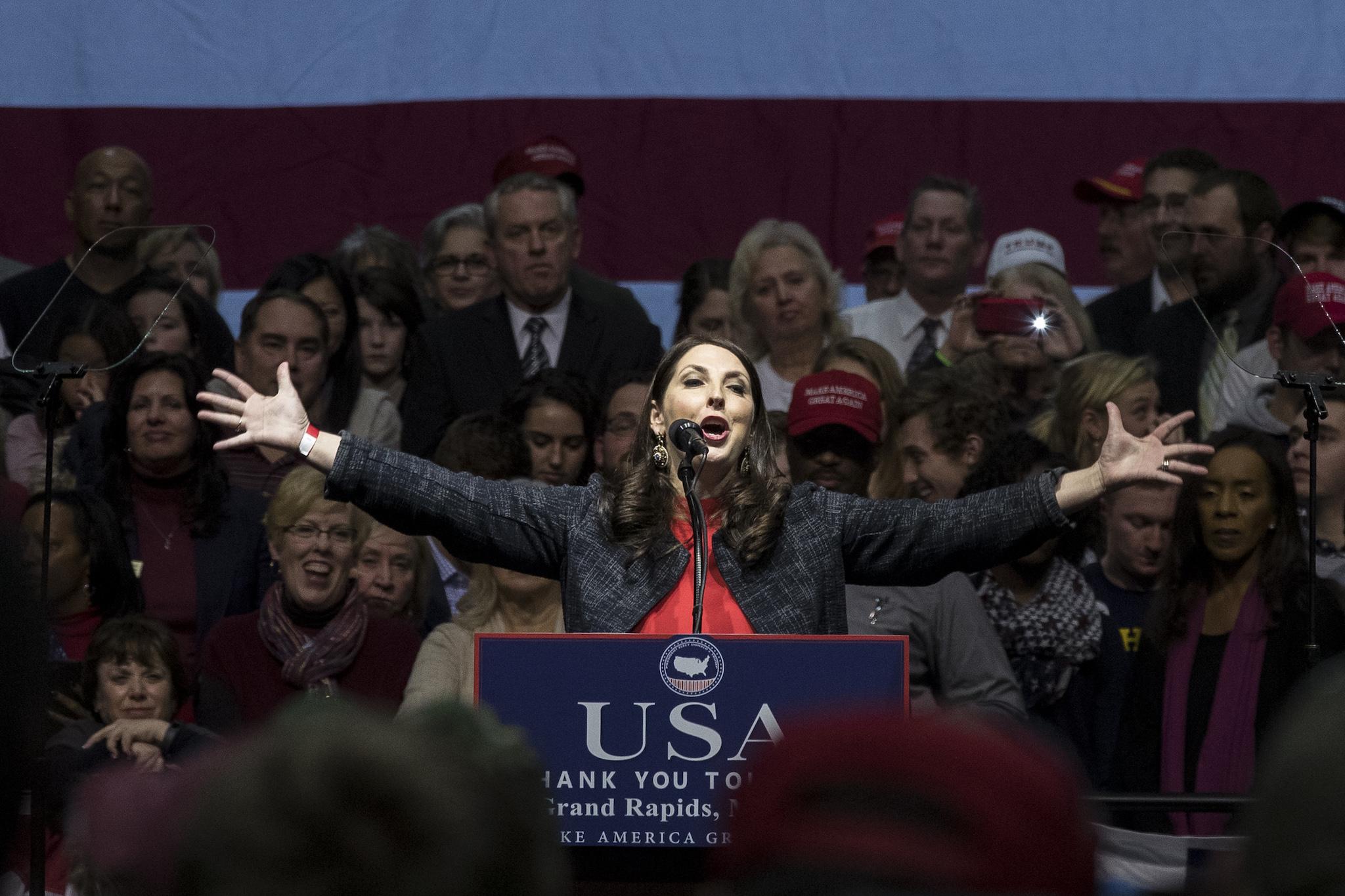RNC chair says blame for Charlottesville violence 'lays squarely on white supremacists'
Republicans appear more apprehensive about addressing the President directly for his view that 'there’s blame on both sides'

Your support helps us to tell the story
From reproductive rights to climate change to Big Tech, The Independent is on the ground when the story is developing. Whether it's investigating the financials of Elon Musk's pro-Trump PAC or producing our latest documentary, 'The A Word', which shines a light on the American women fighting for reproductive rights, we know how important it is to parse out the facts from the messaging.
At such a critical moment in US history, we need reporters on the ground. Your donation allows us to keep sending journalists to speak to both sides of the story.
The Independent is trusted by Americans across the entire political spectrum. And unlike many other quality news outlets, we choose not to lock Americans out of our reporting and analysis with paywalls. We believe quality journalism should be available to everyone, paid for by those who can afford it.
Your support makes all the difference.The woman who Donald Trump endorsed to be head of the Republican National Committee, Ronna Romney McDaniel, has said the blame for the violence in Charlottesville “lays squarely on the KKK and white supremacists”, contradicting the President’s view “there’s blame on both sides” for the deadly clashes last Saturday.
Ms McDaniel’s comments are part of the growing backlash Mr Trump has received for insisting that white supremacists, neo-Nazis and other hate groups did not deserve 100 per cent of the responsibility for the violence that resulted in the death of 32-year-old Heather Heyer.
“When it comes to Charlottesville, the blame lays squarely on the KKK and the white supremacists who organised this rally and put together an entire event around hate and bigotry,” Ms McDaniel said. “I don't think comparing blame works in this situation because we know what initiated the violence and the death of this young woman whose life was taken too soon.”
White nationalist demonstrators gathered in the Virginia city last Saturday to protest the removal of a statue of Confederate General Robert E Lee. The rally, met by counter-protests, quickly became violent – prompting the governor to declare a ‘state of emergency’.
Inside his Manhattan skyscraper on Tuesday, Mr Trump said there were “some very bad people” among the protesters, but added, “You also had people that were very fine people, on both sides.”
While the President won praise from white nationalists and former KKK leader David Duke for his comments, several members of Congress – as well as two ex-Republican presidents – have published statements condemning racial bigotry in the wake of Mr Trump’s remarks.
Former presidents George HW Bush and George W Bush said in a joint statement that “America must always reject racial bigotry, anti-Semitism, and hatred in all forms.”
“As we pray for Charlottesville, we are reminded of the fundamental truths recorded by that city's most prominent citizen in the Declaration of Independence: we are all created equal and endowed by our Creator with unalienable rights,” they said, referring to Thomas Jefferson. “We know these truths to be everlasting because we have seen the decency and greatness of our country.”
Even though members of Congress from both parties have also issued statements condemning racial violence, Republicans appear to be more apprehensive about calling out Mr Trump directly.
So far, less than 20 of 292 Republicans in Congress have published statements that refer to Mr Trump explicitly by name or title, according to ThinkProgress, a political news blog by the liberal Center for American Progress.
Mitch McConnell, the top Republican in the Senate, released a statement on Wednesday in which he said “there are no good neo-nazis”, but did not specifically address the President’s comments.
Mr McConnell said the groups behind the Charlottesville violence are planning a rally in Lexington, in his home state of Kentucky. He warned that “their messages of hate and bigotry are not welcome in Kentucky and should not be welcome anywhere in America.”
House Speaker Paul Ryan, who also did not explicitly state Mr Trump’s name, tweeted on Wednesday, “We must be clear: white supremacy is repulsive. This bigotry is counter to all this country stands for. There can be no moral ambiguity.”
Meanwhile, other Republicans did not shy away from addressing the President.
Senator John McCain, whom Mr Trump called out at the news conference for not voting for the Republican healthcare bill, tweeted, “There's no moral equivalency between racists & Americans standing up to defy hate& bigotry. The President of the United States should say so”.
In a statement to CNN, Senator Lindsey Graham – a frequent critic of Mr Trump – said, “Mr President, I encourage you to try to bring us together as a nation after this horrific event in Charlottesville.”
Senate Democratic Leader Charles Schumer said great and good American presidents seek to unite, not divide.
“Donald Trump’s remarks clearly show he is not one of them,” Mr Schumer wrote on Twitter. “By saying he is not taking sides, Donald Trump clearly is. When David Duke and white supremacists cheer, you’re doing it very very wrong.”
Nancy Pelosi, the top Democrat in the House of Representatives, said in a statement: “The President’s continued talk of blame ‘on many sides’ ignores the abhorrent evil of white supremacism, and continues a disturbing pattern of complacency around acts of hate from this President, his Administration and his campaign for the presidency.”
Join our commenting forum
Join thought-provoking conversations, follow other Independent readers and see their replies
Comments